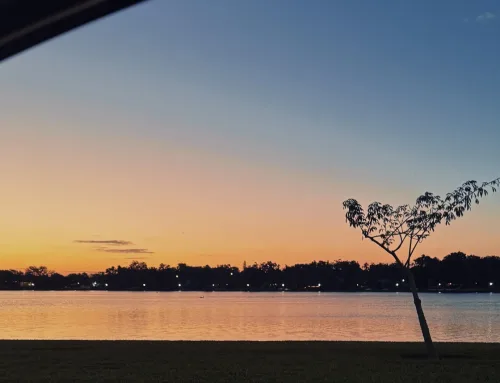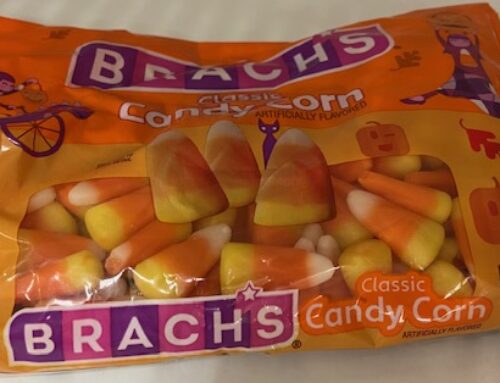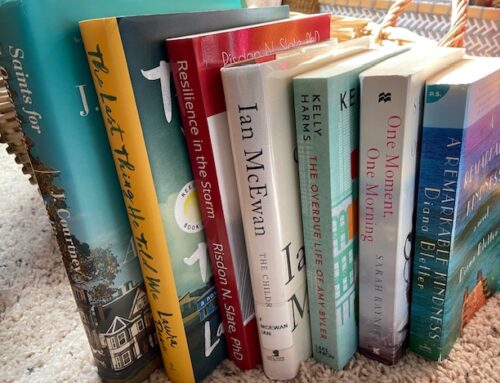Sometimes it’s night-blooming jasmine.
Or ropa vieja.
Or simply freshly mowed grass on a humid morning.
I am once again 7 years old and walking by houses on my six-block walk to and from my elementary school in a new suburb of Miami, relishing the quiet and independence, enjoying the fresh air and the amazing smells emanating from the houses and trees and yards, and making up stories of the people living inside.
Am I nostalgic for simpler times, or did three decades apart soften my view of my hometown of Miami?
For all her flaws, there’s nothing quite like the city of Miami. Indeed, I feel privileged I was brought up on an amalgam of sights and sounds you can’t get from one singular place anywhere else in the world.
Where else can you get a day off of school for the Jewish New Year, drink cafés con leche with family friends, get sunburned at the beach, spot an alligator in your pool, walk by a Santeria altar, eat black eyed peas and rice at your Belizean friend’s house, grab a professional football game, and wind up at a club on South Beach, all in 24 hours.
That doesn’t mean we weren’t privy to strife. Fights, homelessness, fraud, corruption, greed flourished in the Miami of the ‘70s and ‘80s. Much of that resulted from growing pains and newcomer squabbles, nothing our city couldn’t get over with some yelling, sweating, and finger-pointing one day, only to be doing business with one another the next.
Miami never says no. We saw it all as kids: topless beaches, gay nightclubs, ceiling-breaking women legislators, ardent environmentalists. The biggest lesson Miami gave me is to be whatever you want. Out, in. Loud, or reserved. Political, or removed. A night owl, or an early-morning jogger. Scraping by on a houseboat or living on an exclusive island. Haitian housewife, and Miami Beach retiree. Devout Catholic and questioning Jew.
The lines that are so clear in other parts of the U.S. and the world seem to blend, bleed if you will, in South Florida. Were we the living melting-pot experiment that everyone chanted about in the 1960s and 1970s? Was Miami a bubbling microcosm of the American Dream? Is it possible to blur lines between neighbors while maintaining distinct cultures, traditions and integrity, or is that a Utopian vision? We can be different and the same, Miami tells its children.
I carried this message of love and acceptance with me everywhere I went, both in Miami and when I left its streets, first to attend college and then in 1994, to build a career and eventually a family. I hear the same sentiments repeated often from childhood friends. If we’re woke, blame Miami.
As I led discussions of workplace diversity and created employee orientation programs over the years, I often thought of people like Isabel, who arrived in our third -grade classroom in a Southwest Miami development called Winston Park. She understood only a few words of English. My classmates and I worried about her struggles, how she would fit in, what she understood, and was she making friends. We never wanted her to feel Other. Miami made me a lover of cultures and communities. I yearn to know and appreciate all ways of being and thinking, not just my own.
Yet, I was quick to want to leave this city. For where and what, I still don’t know, but I succeeded.
I welcome seeing Miami through the eyes of a visitor. Each trip home, the landscape and vibe change, not necessarily for the worse. New parks, entertainment, sports teams, gardens, Michelin-star restaurants, specialty grocery stores, Everglades adventures, independent bookstores and historical tours pop up. I marvel at what’s new while I pine for what used to be.
I still enjoy cruising down 8th street. Crossing the causeways to the beach, spotting dolphins and cruise ships in the distance, never gets old. A visit always calls for Argentinian, Cuban or Peruvian food. And a real bagel from the nearest deli.
The heat never bothers me. In fact, the feel and smell of 8:30 in the morning in Miami is one of my favorite sensations. The streets are quieter, the morning is still fresh, heat not yet intense, and the warmth just fills you with the possibilities of the day.
And then my blood boils sitting through five traffic lights on Kendall Drive. I become overwhelmed by the number of stores and people and lack of attention. I am a fish in a big, big sea. I will forever be grateful for the unwritten come-as-you-are philosophy of Miami. It produced generations of loving, open-minded children.
I feel that giant embrace every time I get close on the Turnpike Extension. And I heave a sigh of gratitude and relief each time I get back on to leave.




Leave A Comment
You must be logged in to post a comment.